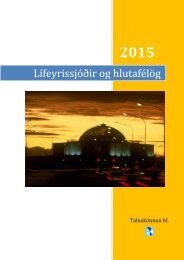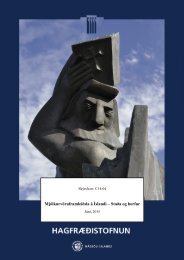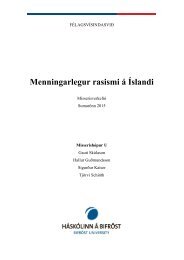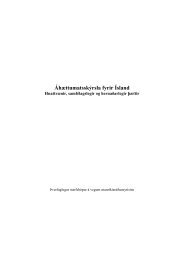Create successful ePaper yourself
Turn your PDF publications into a flip-book with our unique Google optimized e-Paper software.
WORLD REPORT 2016<br />
HUMAN RIGHTS WATCH<br />
the fighting in Kachin State entered an uneasy truce in 2013. Some 130,000<br />
Kachin civilians remain internally displaced in camps, with many IDPs in KIA-controlled<br />
areas receiving little international assistance, largely due to Burmese<br />
army obstruction.<br />
Child Soldiers<br />
The Burmese military continues to recruit and use child soldiers, as do many<br />
paramilitary and militia forces under Burmese army command, and child soldiers<br />
have reportedly been recruited and deployed by many non-state armed groups<br />
as well. The Burmese military has maintained its support for the 2012 Action<br />
Plan agreed to with the UN and international groups to end child soldier recruitment,<br />
and has allowed monitors to visit army and militia camps.<br />
Key International Actors<br />
Influential bilateral partners of Burma including the United States, United Kingdom,<br />
European Union, and Australia maintained their support for the limited reforms<br />
of the Thein Sein government despite increased concerns over renewed<br />
assaults on basic freedoms. Numerous governments praised the relatively open<br />
November elections and the conduct of parties and the UEC.<br />
The EU continued to sponsor Burma resolutions in the UN Human Rights Council<br />
(HRC) and General Assembly in 2015. In July, the HRC passed a resolution condemning<br />
persecution of Rohingya and other minorities in Burma and called on<br />
the government to ensure human rights protections for all groups.<br />
China did not raise human rights concerns in 2015 but sharply criticized Burma<br />
for its failure to stem fighting in Kokang that spilled over the border, particularly<br />
for air strikes that killed a number of Chinese civilians.<br />
Russia continues to sell Burma conventional arms, and there are reports that<br />
Burma and North Korea maintain military links. The US, UK, and Japan engaged<br />
in limited military-to-military engagement with Burma in 2015.<br />
Burundi<br />
Burundi’s progress toward democracy and stability has suffered serious setbacks,<br />
as political upheaval and widespread killings by security forces and<br />
armed opposition groups gripped the country.<br />
In April, demonstrations broke out in response to the news that President Pierre<br />
Nkurunziza would seek election for a third term. Police used excessive force and<br />
shot demonstrators indiscriminately, killing and injuring scores of people.<br />
The government launched a crackdown against civil society activists and journalists<br />
and closed the four most popular private radio stations. Leading human<br />
rights activist Pierre Claver Mbonimpa was seriously injured in an assassination<br />
attempt.<br />
Around 200,000 Burundians fled the country, most to Tanzania and Rwanda.<br />
Dozens of journalists, civil society activists, and opposition party members remain<br />
in exile.<br />
Killings escalated after July’s presidential election that returned Nkurunziza to<br />
power. Most opposition parties boycotted the election. Government forces,<br />
armed opposition groups, and unknown assailants killed more than 100 people<br />
in the second half of the year.<br />
Abuses by Security Forces<br />
In late April, the announcement by the ruling National Council for the Defense of<br />
Democracy-Forces for the Defense of Democracy (CNDD-FDD) that Nkurunziza<br />
would stand for a third term ignited protests in the capital Bujumbura, and later<br />
in other locations. Many Burundians complained that the president’s third term<br />
violated a 2000 peace agreement that sets a maximum of two five-year presidential<br />
terms. Police suppressed the protests violently, shot dead dozens of demonstrators,<br />
and injured many others.<br />
Following a failed coup d’état by a group of military officers on May 13, the government<br />
intensified its crackdown on protesters. Police arrested hundreds of<br />
people, including suspected opponents, many arbitrarily, and detained them for<br />
prolonged periods without trial.<br />
144<br />
145










